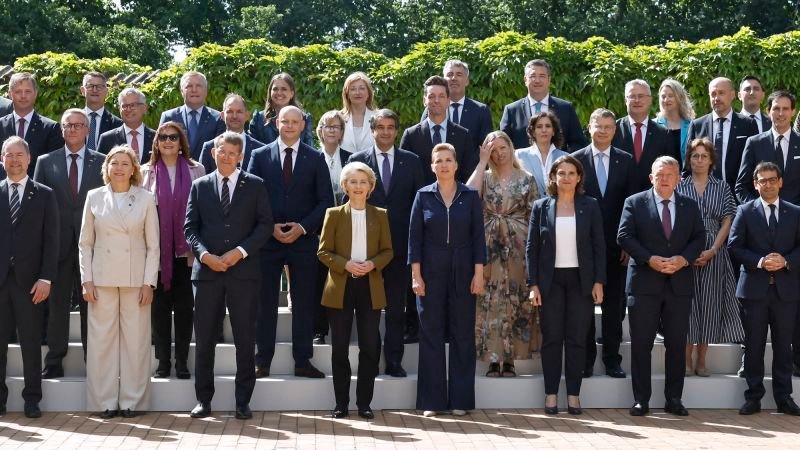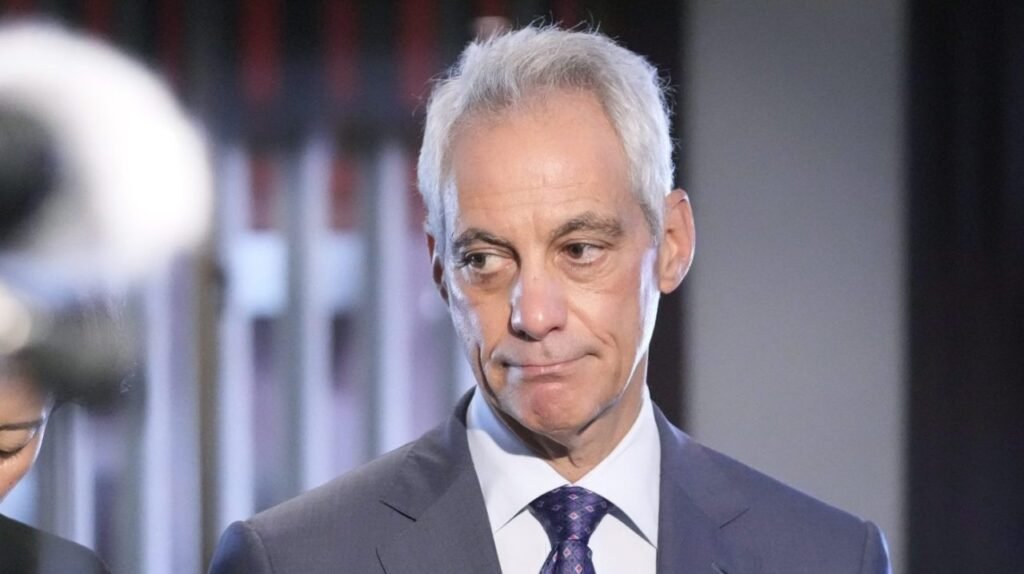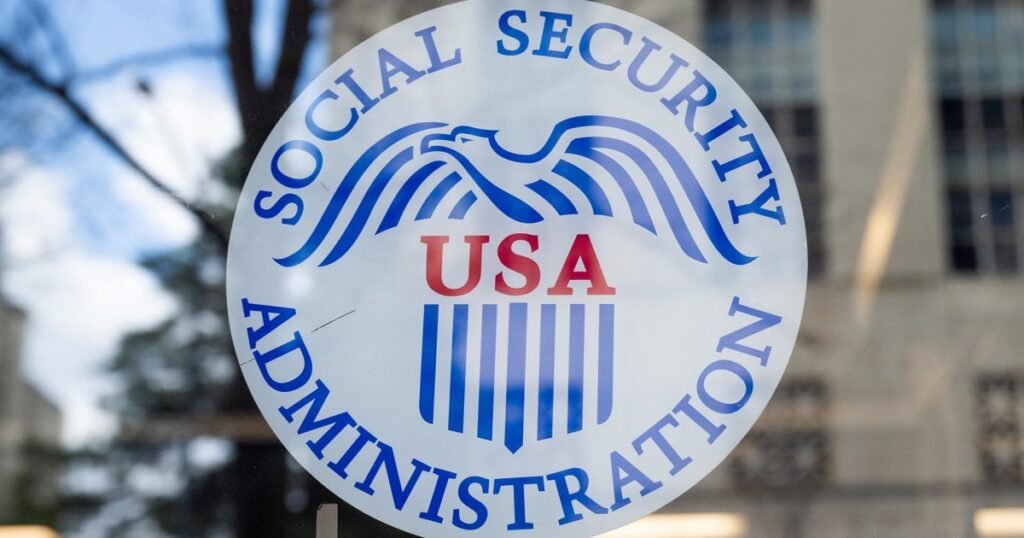WASHINGTON (KTUU) — With Congressman Nick Begich, R-Alaska, standing just to his right, President Donald Trump met his July 4 deadline signing his ’One Big Beautiful Bill mega bill into law – calling out Alaska’s senior senator by her first name.
“I liked it because we had so much in there that no matter who you are, there was something in that bill that would make your congressman or your senator or your congresswoman much more importantly raise their hand and support,” Trump said to a crowd on the White House lawn Friday, with rows of American flags to his left and right celebrating Independence Day.
“Right, Lisa?” Trump went onto say.
The reference to Sen. Lisa Murkowski, R-Alaska, who was vocal about her reservations against the bill despite ultimately voting for it, which was the deciding vote that split the Senate 50-50. Vice President JD Vance broke the tie.
The bill scraped through the House, too, losing two of the four votes it could afford to give up. Alaska delegation ultimately played a key role in the bill becoming law Friday.
“But I just want to thank everybody a lot of senators here, a lot of Congressmen and women here.” he said. “Lisa, thank you very much. By the way, I have to thank you. Thank you very much. You’ve been fantastic.”
With the contention of fervent debate and overnight speeches now in the past, a new Alaska dichotomy is emerging in between federal and state leaders and the constituents they represent.
One of supporters’ extreme optimism, believing in what leaders have promised the bill could provide for the state’s future. The other, deep concern in what opponents fear the bill could do to the state’s most vulnerable populations.
Alaska Supporters: Optimism includes excitement over promise of tax breaks, job growth, resource development & inflation reduction
“The passage of the Big Beautiful Bill is a huge win for Alaska,” Gov. Mike Dunleavy said on social media following its passage out of Congress. “It puts up to 70% of Cook Inlet and ANWR oil revenues back into our state, restarts lease sales, and invests billions in Arctic infrastructure — including homeporting our first polar icebreaker. This is the kind of policy that secures Alaska’s future.”
Sentiments like the Governor’s have been echoed by proponents, including members of Alaska’s delegation.
Begich toted the bill put “money back in your pocket,” in a social media post.
“Overtime and tips are now tax-free, small-business depreciation is immediate, and the Trump tax cuts are made permanent so families can save, and businesses can hire,” he said. “Further, there are even additional deductions for seniors on Social Security.”
In an interview with Alaska’s News Source, Sen. Dan Sullivan, R, said “the one state that really, really did well in this bill was the great state of Alaska.”
Sullivan lauded several investments afforded by the bill, including 25 billion into the Coast Guard and $46 billion to build a wall at the U.S.-Mexico border.
In addition, to critics worried about healthcare cuts, Sullivan referenced the bill creating a $50 billion rural hospital fund, which he said Alaska should anticipate receiving $200 million from over the next five years.
Alaska’s delegation has not been a united front in its complete optimism of the bill’s impact – that point of contention coming from Sen. Lisa Murkowski, R, the deciding vote on the bill’s passage. In a statement, she called it “one of the hardest votes I have taken during my time in the Senate.”
In the same statement Murkowski defined “Alaska’s interests” as advanced opportunities for resource development in the National Petroleum Reserve in Alaska (NRP-A,) the Coastal Plain and Cook Inlet, with aims to create jobs and increase Alaskan revenue.
It is those-type of Alaska-specific provisions added to the bill, some of her colleagues say, that may have convinced her to vote yes.
“They chose to add more pork and subsidies for Alaska to secure that vote,” said Republican Sen. Rand Paul, R-KY, the Associated Press reported.
When NBC Reporter Ryan Nobles told her Paul’s comment, Murkowski said she did what was best for the state.
“Do I like this bill? No, because I tried to take care of Alaska’s interests,” she responded inside the halls of the Capitol Tuesday morning. “I know that in many parts of the country, there are Americans that are not going to be advantaged by this bill. I don’t like that.”
Begich told CNN after the bill passed, the party got what it wanted at the end of the day.
“I understand her desire to make some corrections from her perspective for SNAP and Medicaid. That’s what she needed to do in order to get to a yes on this bill,” Begich told CNN.
Alaska’s News Source has reached out to Laborers Alaska and the Alaska Oil and Gas Association for comment on the bill’s passage but had not not returned request for comment at the time of publication.
Deep Concern: Opponents fear potential losses will include healthcare & food assistance benefits
While the delegation says the bill is a net benefit to Alaska, some state lawmakers say potential benefits do not outweigh what they view as cost – specifically citing possible Medicaid and SNAP Benefits.
“There are some provisions in (the bill) like $50 billion for a rural hospital fund where Alaska has to compete with other states for that pocket of money,” House Health & Social Services Committee Chair Genevieve Mina, D-Anchorage, told Alaska’s News Source at a press conference outside the delegation’s Anchorage office Thursday.
“There’s so many questions about this amount of money and also a deadline where states have to apply by the end of the year. Does that make up for the amount of Medicaid costs that will be lost to rural hospitals? We don’t know.”
Mina said her House District 19 constituency, which includes the Anchorage neighborhoods of Airport Heights, Mountain View and Russian Jack, is the most reliant on Medicaid and SNAP Benefits in Alaska. While she said she didn’t know the effects the bill could have because it “was passed so fast,” she feels confident saying it was going to hurt a lot of people.
Cara Durr, CEO of the Alaska Food Bank, also spoke outside the delegation’s Peterson Tower offices. She said SNAP was Alaska’s largest and most efficient anti-hunger program and led to $280 million in redemptions statewide.
“But instead of strengthening this lifeline, the new budget bill adds expanded work requirements and additional red tape for both States and families,” Durr said. “These changes won’t reduce hunger. They will make it worse. They create new administrative hurdles that delay access and cause eligible people to lose benefits even when they’re doing everything.”
Mina hasn’t been the only outspoken voice, nor is it one held solely by Democrats.
Speaker of the House Bryce Edgmon, I-Dillingham, and House Majority Leader Cathy Giessel, R-Anchorage, penned a New York Times opinion piece last week called, “Alaska Cannot Survive This Bill.” In it, they spell out the risk this piece of legislation has on Alaskans.
“Nearly 40,000 Alaskans could lose health care coverage, thousands of families will go hungry through loss of benefits from the Supplemental Nutrition Assistance Program, or SNAP, and the shift in costs from the federal government to the state will plunge our budget into a severe deficit, cripple our state economy and make it harder to provide basic services,” they said.
Those numbers come out of a statement from the Joint Economic Committee Democrats, led by Ranking Member Maggie Hassan, D-NH, following a report from the nonpartisan Congressional Budget Office that upwards of 13 million across the country will lose healthcare.
The Medicaid and SNAP cuts do have notable exemptions for American Indians and Alaska Natives, though. Alaska Natives are exempt from the new Medicaid and SNAP work requirements, according to the National Indian Health Board.
“While this bill makes harmful cuts to this important program, the exemptions the bill provides will continue to secure access to this important program for American Indians and Alaska Natives,” the National Indian Health Board said in a news release.
In an interview with Alaska’s News Source after Murkowski voted for the bill, Giessel found the senator’s support for the bill confusing but trusted that she trusted her judgement.
“Any reduction in Medicaid and federal support is going to ripple not only through Alaskans as people and Alaska communities, but also our whole economy,” Giessel said.
And on Friday, as Anchorage began its Fourth of July celebrations, dozens of community members gathered to protest the bill passing downtown.
“This is not the America I served for, the America I deployed and fought for,” protestor April Robinson said, adding that she had served 20 years in the U.S Air Force before retiring.
Even former Rep. Mary Peltola, who lost her seat to Begich in the 2024 election, came out of a four-month social media hiatus to voice her opposition to the bill.
“We can not secure Alaska’s future by increasing healthcare and energy costs for regular Alaskans, so millionaires, like many of my former colleagues in Congress, and their billionaire donors can get even richer,” she said. “Yes, let’s develop Alaska’s resources, but for the benefit of all Alaskans, not just a few.”
Peltola declined a request for comment on the bill’s passage Thursday.
See a spelling or grammar error? Report it to web@ktuu.com
Copyright 2025 KTUU. All rights reserved.








